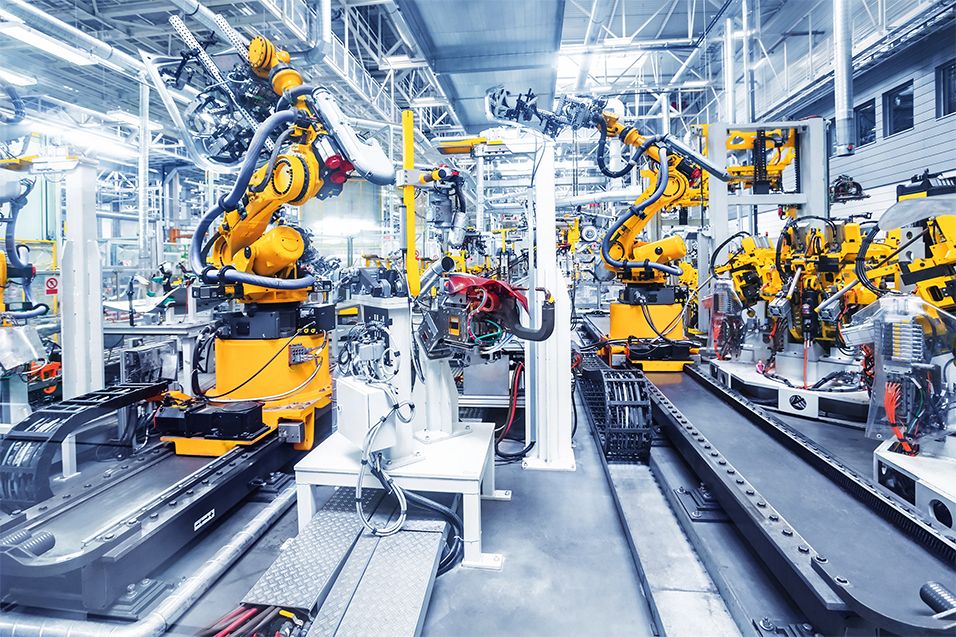Last news about IDEKO.

The European initiative, Productive 4.0, involves 114 business, research and technology entities from 19 countries
With a budget of €106 million, the program intends to combine the management of tools and technologies to move forward in industrial digitisation
It covers the entire production process, from the conception of the idea to the after-sales service and recycling of the product
The IK4-IDEKO technology centre will have a significant role in the Productive
4.0 European project, the Industry 4.0 initiative that
seeks to drive the introduction of information and communication technologies
in industrial companies through an integrated digitisation programme that
covers all the production process phases, and enables progress in the
construction of intelligent factories.
The initiative, which began last May and involves 114 technology and business partners from 19 European countries, has a budget of €106 million and constitutes a significant step forward in the immersion process of European industry in the digital revolution.
“The importance of Productive 4.0 to the development of the industrial sector lies in the fact that it is a global approach, the scope of which not only covers the production phase, but the three pillars that support the entire process: digital automation, supply chain networks and the management of the final product life-cycle”, said the project coordinator at IK4-IDEKO, Gorka Unamuno.
The initiative, which will go on to 2020, intends to create a standardised digitisation system that operates in companies devoted to strategic sectors of the European economy.
In addition to
IK4-IDEKO, the Productive 4.0 project,
led by the German company Infineon Technologies, has the
participation of a dozen Basque entities, such as Innovalia, Engine Power Componentes, TRIMEK, Savvy Data Systems, Danobat, Mondragon Assembly, ULMA Embedded Solutions, Mondragon Goi Eskola Politeknikoa and Mondragón
Sistemas de Información.
The experience of four research groups
The role that the Basque technology centre plays in this project involves different research groups from the entity. The IK4-IDEKO ICT and Automation group, together with the Dynamics and Control, Precision Design and Engineering and Manufacturing Processes teams, will lead the development of advanced digitisation solutions to increase the degree of automation and optimise the production processes that are carried out both by stand-alone machines and complex production lines.
The application of this ambitious European project not only involves the introduction of integrated ICT and automation solutions, but also the creation of a production framework that contributes to improving transparency, security and consistency of data extracted from the machines and the production systems in order to, in this way, progress in the global industrial digitisation process.
Strategic objectives and technology transfer
The first of the Productive 4.0 objectives is strategic: the whole of the European industrial sector is prepared to carry out more intelligent production, to make better use of the resources at its disposal, and to apply in a flexible way any change or improvement that takes place in its work standards and environments. Ultimately, to be more competitive.
“It is about strengthening the international leadership of European industry. To achieve this, Productive 4.0 will be responsible for providing industries with the set of tools and innovations in the area of digitisation, which are capable of transforming this potential into commercial success”, added the expert.
The task is not simple: exhaustive dissemination work is required as well as the putting into practice of tailored practical approaches and solutions that will come from semiconductors, automation systems based on ICTs and service platforms. These elements will be those that allow tasks to be carried out that today are fundamental for any digitalised business structure, and which are based on 4.0 concepts such as the Internet of things, connectivity and interoperability, monitoring, simulation, digital twins, etc.
Furthermore, Productive 4.0 is based on a fundamental premise, inherent in the digitisation concept: the production process does not end on the sale of the product but covers from the conception of the idea to the after-sales service and includes recycling.
A road full of challenges
With this roadmap already outlined, the achievement of the objectives of Productive 4.0 must overcome various challenges that affect the industrial sector as a whole. One of the most important is industrial cyber security: technology suppliers must be capable of guaranteeing the security of the infrastructures, maintaining the protection of the communication networks and preserving data security.
To this is added compatibility with legacy systems, the inherited systems whose integration into new platforms is a real headache for technology leaders.